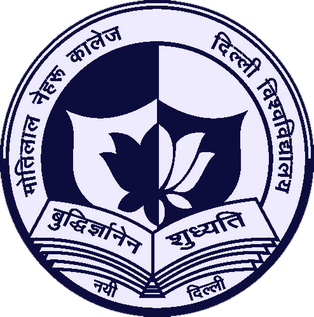Bachelor of Science (Honours) [B.Sc. (Hons.)]
3 Years
B.Sc. (Hons.) Programs Offered at Motilal Nehru College:
-
B.Sc. (Hons.) Physics:
-
Focuses on advanced topics in physics such as mechanics, thermodynamics, electromagnetism, quantum mechanics, and optics.
-
Prepares students for careers in research, teaching, engineering, and industries requiring scientific expertise.
-
-
B.Sc. (Hons.) Chemistry:
-
Covers inorganic, organic, and physical chemistry, along with modern techniques in chemical analysis.
-
Career opportunities include work in pharmaceuticals, chemical industries, environmental sectors, research, and academia.
-
-
B.Sc. (Hons.) Mathematics:
-
Covers advanced mathematics topics such as algebra, calculus, differential equations, number theory, and applied mathematics.
-
Graduates can work in data analysis, finance, teaching, actuarial science, and research.
-
-
B.Sc. (Hons.) Botany:
-
Focuses on plant biology, genetics, ecology, biotechnology, and the study of plant species and their environments.
-
Career options include research, environmental conservation, agriculture, and botanical research institutes.
-
-
B.Sc. (Hons.) Zoology:
-
Concentrates on animal biology, ecology, genetics, physiology, and evolution.
-
Graduates can pursue careers in wildlife conservation, research, teaching, and working with NGOs or in zoological research.
-
Core Features of the B.Sc. (Hons.) Program:
-
Core Courses:
-
Each program includes a set of core subjects specific to the discipline, offering in-depth knowledge in specialized fields of study.
-
Examples: For Physics, core courses could include Mechanics, Thermodynamics, Electrodynamics, and Modern Physics.
-
-
Practical and Laboratory Work:
-
The B.Sc. (Hons.) programs emphasize hands-on laboratory work, which is essential for students to understand and apply the theoretical concepts they learn in the classroom.
-
-
Discipline-Specific Electives (DSE):
-
Students are encouraged to select electives related to their chosen field, allowing for greater specialization. For example, Physics students may take advanced courses in computational physics or astrophysics.
-
-
Generic Electives (GE):
-
Students can also choose courses from other scientific or non-scientific disciplines to broaden their knowledge. For instance, a Botany student could take Environmental Science as a GE.
-
-
Skill Enhancement Courses (SEC):
-
These courses help students develop specific skills required for career development, such as laboratory techniques, scientific communication, and IT tools for research.
-
Duration:
-
The course lasts for three years (six semesters).
Eligibility Criteria:
-
Candidates must have completed their 12th-grade education in the Science stream with subjects like Physics, Chemistry, and Mathematics/Biology (depending on the chosen specialization).
-
Specific eligibility criteria, such as minimum percentage requirements, are set by the cut-off list released by the college after the Class 12 results.
Admission Process:
-
Admission to the B.Sc. (Hons.) programs at Motilal Nehru College is typically merit-based.
-
The college releases its cut-off list after the Class 12 board results.
-
Students who meet the cut-off can apply through the University of Delhi's centralized admission system.
Career Opportunities:
Graduates of B.Sc. (Hons.) from Motilal Nehru College can explore various career options, including:
-
Research & Development: In scientific research, universities, or research labs.
-
Teaching: After pursuing postgraduate studies and teacher training.
-
Industry: Working in pharmaceuticals, biotechnology, environmental science, engineering, data science, and other industries requiring scientific expertise.
-
Further Studies: Many students go on to pursue M.Sc. (Master of Science) in their respective fields, or other professional courses like M.Tech, MBA, or Ph.D..
Why Choose B.Sc. (Hons.) at Motilal Nehru College?:
-
The college offers a rigorous curriculum that prepares students for careers in scientific research, teaching, and industry.
-
Emphasis on practical learning and exposure to advanced scientific tools and techniques.
-
Strong faculty support and a vibrant academic environment conducive to growth and innovation.






 OMAWATI686b96fcc7a5c.jpg)